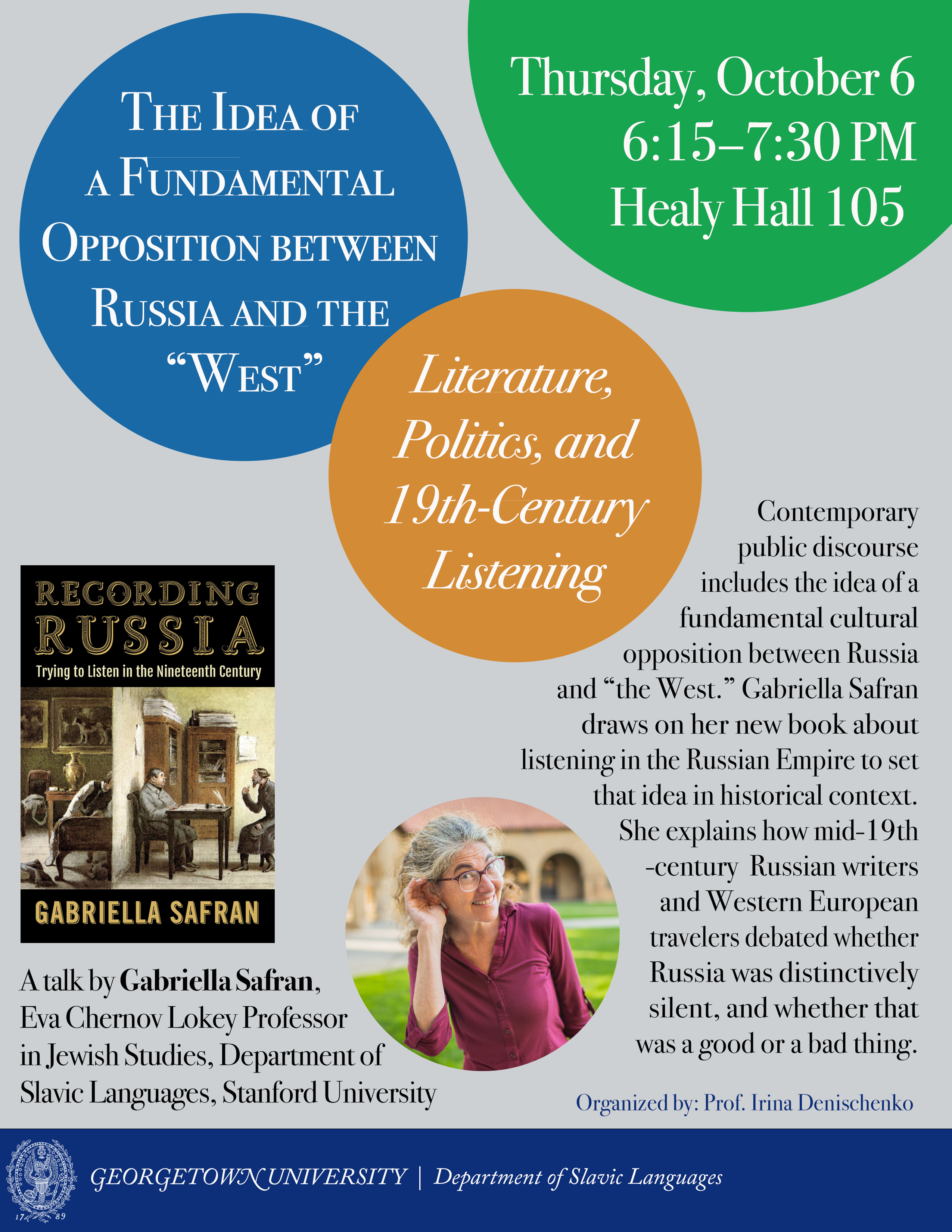The Idea of a Fundamental Opposition between Russia and “the West”: Literature, Politics, and Nineteenth-Century Listening
Gabriella Safran, the Eva Chernov Lokey Professor in Jewish Studies, teaches in the Department of Slavic Languages and Literatures at Stanford University, where she also serves as the Senior Associate Dean of Humanities and Arts. Her most recent monograph is Wandering Soul: The Dybbuk’s Creator, S. An-sky; her Recording Russia: Trying to Listen in the Nineteenth Century is forthcoming. She is now beginning a book about the rise of the notion of Jewish speech style, in multiple languages, as comical.
Contemporary public discourse includes the idea of a fundamental cultural opposition between Russia and “the West.” Gabriella Safran draws on her new book about listening in the Russian Empire to set that idea in historical context. She explains how mid-nineteenth-century Russian writers and Western European travelers debated whether Russia was distinctively silent, and whether that was a good or a bad thing.
